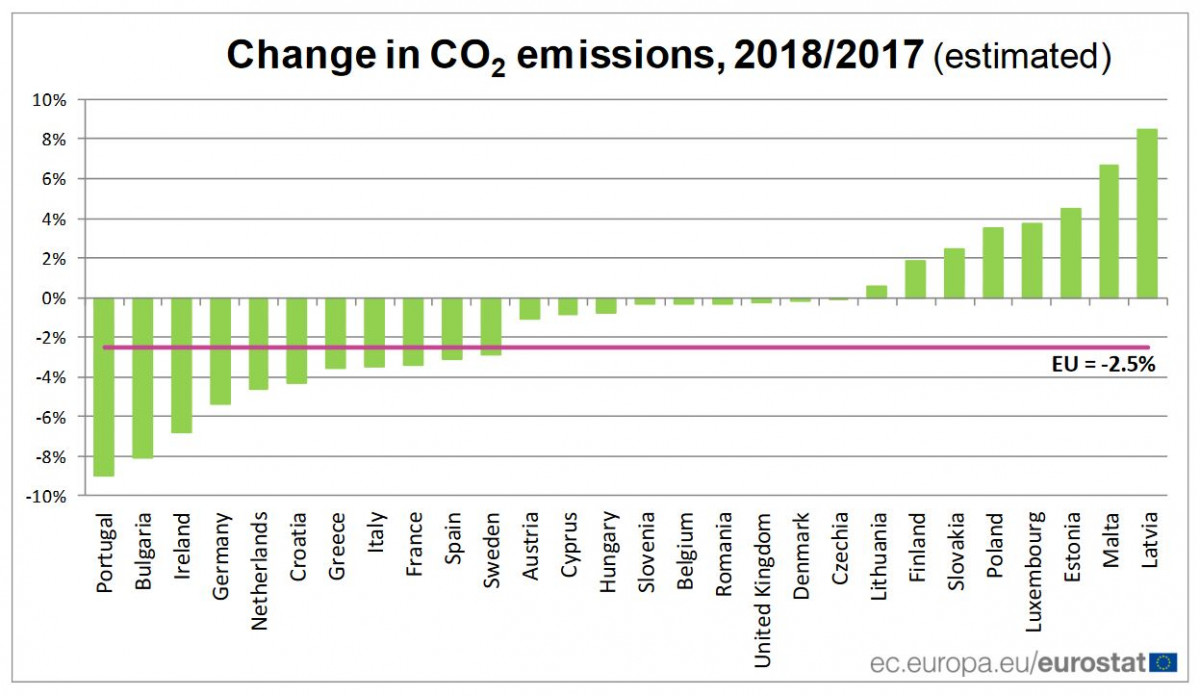Lower emissions in Germany contribute to CO2 reduction across EU in 2018
The CO2 emissions from fossil fuel combustion decreased by 2.5 percent in the European Union in 2018 compared to the year before, partly driven by a decrease of 5.4 percent in Germany, the EU's biggest emitter, according to the EU statistics office Eurostat. Out of the block's 28 member states, 20 posted a decrease in emissions. Portugal recorded the largest drop of 9 percent, followed by Bulgaria (-8.1%), Ireland (-6.8%) and Germany. In contrast, emissions rose strongest in Latvia (+8.5%) and Malta (+6.7%) and also in much bigger Poland (+3.5%).
Total emissions in Germany last year saw the greatest drop since the 2009 recession. Warm weather and higher prices dampened the use of climate-damaging fossil fuels, bringing overall greenhouse gas emissions down by 4.5 percent. However, Germany still is struggling to meet some of its national and European climate targets in the coming years, for example for emissions reduction in sectors not covered by the European Emissions Trading System (ETS), such as transport and buildings.

